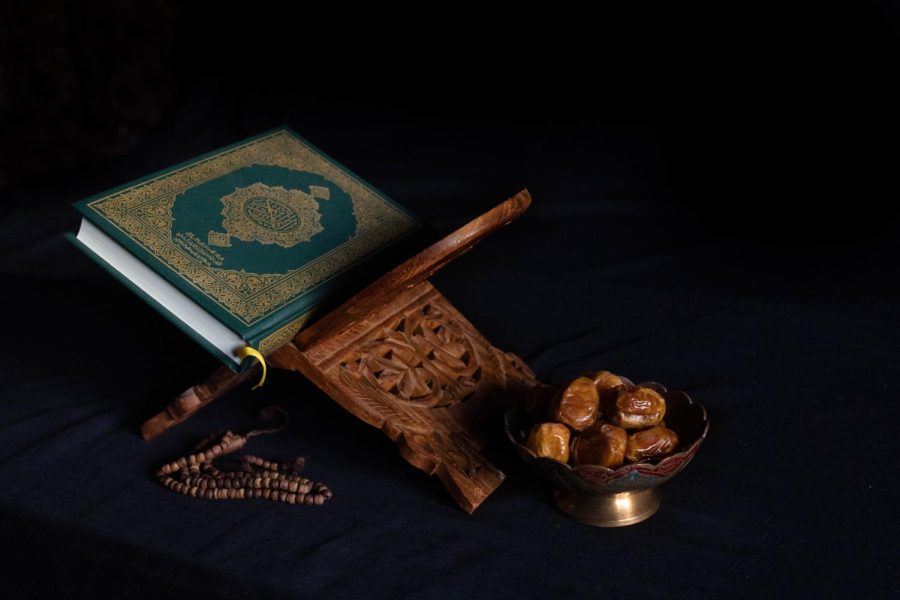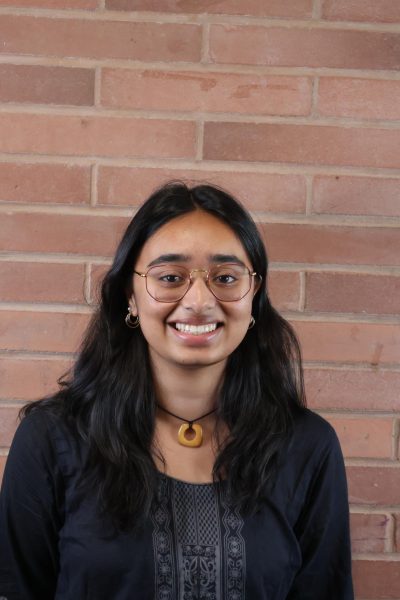Muslim students at IBW celebrate Ramadan
April 14, 2023
The sunset of March 22 marked the beginning of Ramadan, the holiest month in the Islamic calendar. From one crescent moon to the next, Muslims from across the world will spend a month fasting, praying and reflecting. This year, Ramadan will be observed from March 23 until sunset on April 20. At the end of the month, Muslims will celebrate Eid-ul-Fitr for the completion of Ramadan, which will take place on Friday, April 21.
During Ramadan, Muslims will start fasting every day at sunrise after eating their pre-dawn meal, suhoor. Once the sun sets, Muslims will break their fast by eating—this is called iftar. However, fasting isn’t the only part of Ramadan.
From dawn to dusk, Muslims will not only refrain from eating and drinking, but they will devote themselves to advancing spiritually and morally by observing the five daily prayers and studying the Holy Qur’an; the holy book of Islam. Most Muslims aim to complete all 604 pages in these 30 days.
In Portland, there is a fairly large Muslim community from all backgrounds. Different Muslim communities come together and host iftar events at their local mosques, not just for themselves, but also for non-Muslims. Children come with their parents to the mosque and experience the positive atmosphere inspiring them to fast.
IBW junior, Fatima Azouz, has been fasting for the past seven years during the month of Ramadan. “All my older cousins and friends were doing it, so I wanted to be like them,” she said. Azouz grew up in a large Muslim community, so she was surrounded by older people who would fast, eventually inspiring her to start full-day fasting at the age of ten.
Although Azouz began fasting at a young age and was surrounded by those who also fasted, many kids at her school didn’t fully understand what Ramadan was about. “A lot of the kids just did not know at all what it was, so I’d explain it to them,” Azouz said. “Most of their reactions were like ‘That sounds so hard!’ or ‘Not even water?’” she said. This idea of not eating for a full day is difficult to understand for many non-Muslims. Even Azouz’s teachers didn’t fully understand or support her when she was fasting. “They just simply didn’t know what it was or how it worked,” she said. Many of them still made her do lots of physical work, even though she was exhausted from not eating.
Fortunately, people are slowly becoming more knowledgeable about Ramadan. Students at Ida B. Wells are much more understanding about Ramadan, and many support their fellow Muslim students.
Many of Azouz’s non-Muslim friends have supported her as she fasts during school days. “A lot of my friends help me out. They drop off candy or treats for me during iftar, which was super sweet of them,” said Azouz. “They sometimes sit with me at the library instead of going out to lunch. I’ve even had a couple friends fast with me, which was really cute of them.”
Sara Abdi, who is also a junior at IBW, has similar views as Azouz. Abdi also began to observe Ramadan at a young age and has noticed the shift in support from when she was younger to now. “People nowadays understand what Ramadan is, like what it entails,” she said. “My teachers are very aware and supportive. At the beginning of Ramadan, they would tell me ‘Ramadan Mubarak’.”
Abdi grew up in Syria, a predominantly Muslim country. “For suhoor, the pre-fast meal, they would like play drums really loudly to wake everyone up,” she said. Moments like this during Ramadan are often held as core memories for people like Abdi. Spending time with your local communities is something Muslims enjoy during this month.
Ramadan is a time when Muslims can connect spiritually with God and each other. To each and every Muslim, Ramadan can have a special meaning. “It’s a month of worship,” said Abdi. “There’s so much more than not just eating, it’s a time of reflection to become a better person and to become closer to your religion.”



